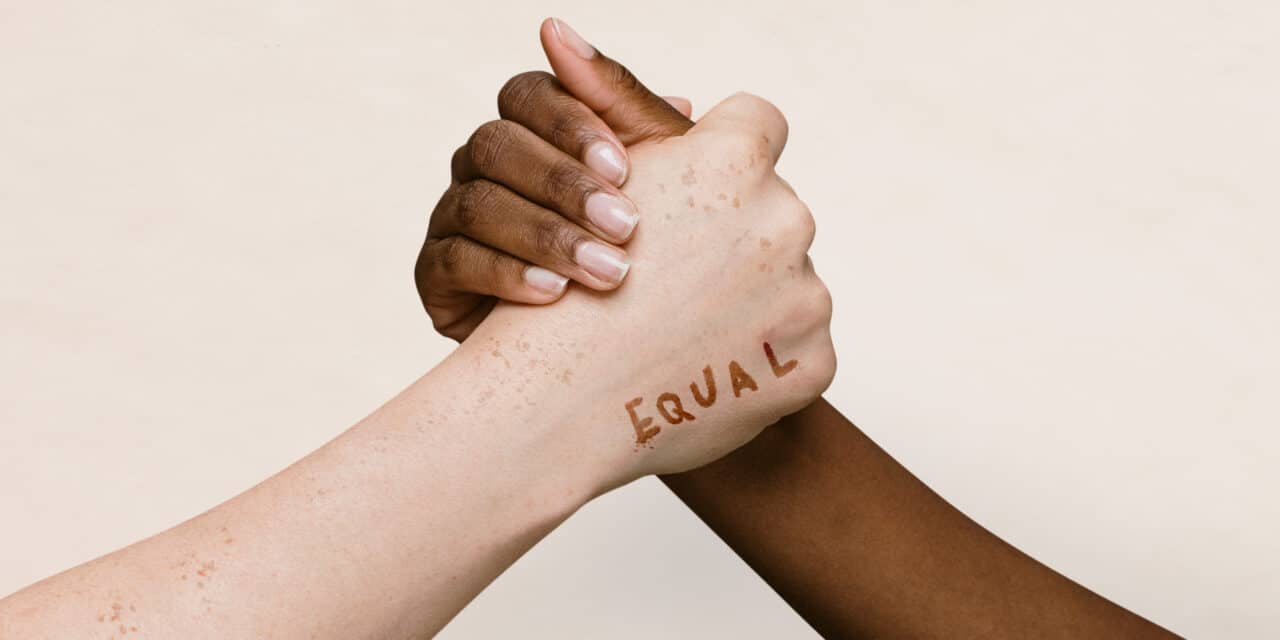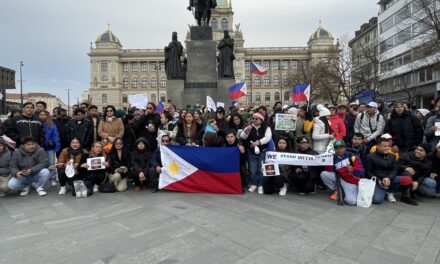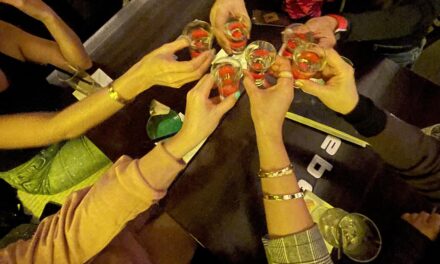PRAGUE – Imagine walking into a pub, only to feel every pair of eyes in the room fixate on you. You look different from the rest, and the awkwardness settles in as you suddenly wish you were anywhere but there. Then, out of nowhere, someone approaches you and bluntly tells you that you don’t belong, that you should go back to your own country.
Just picturing this scenario is painful, but the sad reality is that it happens to some people.
Now, imagine shopping for clothes at a mall, only to notice that someone is following you. Why? Because they suspect you of stealing, simply because you look different, because to them, you are an outsider. It sounds brutal, but this has been the experience of many of our kababayans living abroad, particularly in the Czech Republic.
To be clear, this does not mean that everyone in the country is racist. However, there are individuals who, for their own reasons, hold prejudiced views, and such incidents are not uncommon.
Recently, a viral video circulated online showing a tram driver shouting anti-Ukrainian slurs at a Ukranian passenger holding a child. This raises an important question: what exactly is racism, and how can immigrants protect themselves against it in a foreign land?
Understanding Racism
According to Britannica, racism is defined as:
“The belief that humans may be divided into separate and exclusive biological entities called ‘races’; that there is a causal link between inherited physical traits and traits of personality, intellect, morality, and other cultural and behavioral features; and that some races are innately superior to others.”
In other words, racism isn’t just about skin color or physical differences, it also extends to cultural beliefs, traditions, and other distinguishing factors.
RECOMMENDED ARTICLES:
- Behind the Role: Gel Andersen Brings Kim Flores to Life in Netflix Hit, Secrets We Keep
- Filipino Slingshot Shooter Takes First Place at Czech Sniper Competition
- A Sovereign AI-Governed Island? The Philippines Says, Why Not?
- June 12: Commemorating the Philippines’ Independence From Centuries of Colonial Rule
- Understanding The Awak and the Ab-abiik Indigenous Belief of the Kankanaey Tribe
Who Are the Targets of Racism?
Anyone can be a target of racism. While people of color or those with distinct physical features often experience discrimination, racism ultimately stems from a mindset of superiority. As Filipinos, we may be more vulnerable to discrimination because we belong to a minority group in many countries.
How to Protect Yourself

Don’t Fuel the Fire: If someone is being rude or confrontational, the best response is often to walk away. Many conflicts escalate when both sides engage in an argument, so staying calm can prevent a situation from worsening.
Seek Help If It Turns Physical: If someone physically harms or threatens you, seek immediate help. Call the police or ask for assistance from bystanders.
Address Workplace Discrimination: If you experience discrimination at work, report it to your direct supervisor or the HR department. Companies have policies in place to handle such issues.
Legal Protections Against Racism in the Czech Republic
The Czech Republic has strong legal measures to combat racism and discrimination, mainly through the following:
Anti-Discrimination Act (Act No. 198/2009 Coll.) – Prohibits racial and ethnic discrimination in multiple areas of public life.
Labour Code (Act No. 262/2006 Coll.). These laws prohibit discrimination in various forms, including in employment, education, healthcare, and access to goods and services.
Criminal Code: Prohibits racial and ethnic discrimination in multiple areas of public life.
Specific Offenses
- Defamation of a nation, race, ethnic group, or other group of people is punishable by up to two years in prison 1
- Incitement to hatred against any group is punishable by up to two years in prison, with increased penalties if committed through media or by participating in discriminatory groups. 2
- Violence or threats against a group or individual based on protected characteristics can result in imprisonment for six months to three years. 3
Punishment
- Penalties: The penalties for hate crimes vary depending on the specific offense and whether hate is considered an aggravating circumstance. For example, bias-motivated murder carries a sentence of 15 to 20 years.
- Aggravating Circumstances: If a crime is motivated by hate, the court must consider this as an aggravating factor, potentially leading to longer sentences.
While racism still exists, knowing your rights and how to handle discrimination can help you navigate life in a foreign land. If you ever find yourself in such a situation, remember that the law is on your side.
REFERENCES:
- Irish Council for Civil Liberties. (2018). Life cycle of a hate crime: Country report for Czech Republic. https://www.iccl.ie/wp-content/uploads/2018/10/Life-Cycle-of-a-Hate-Crime-Country-Report-for-Czech-Republic-English.pdf ↩︎
- European Parliamentary Research Service. (2024). Countering hate speech: European and international approaches (EPRS Briefing 766226). European Parliament. https://www.europarl.europa.eu/RegData/etudes/BRIE/2024/766226/EPRS_BRI(2024)766226_EN.pdf ↩︎
- Organization for Security and Co-operation in Europe. (n.d.). Hate crime legislation in the Czech Republic. OSCE. https://hatecrime.osce.org/hate-crime-legislation-czech-republic ↩︎











